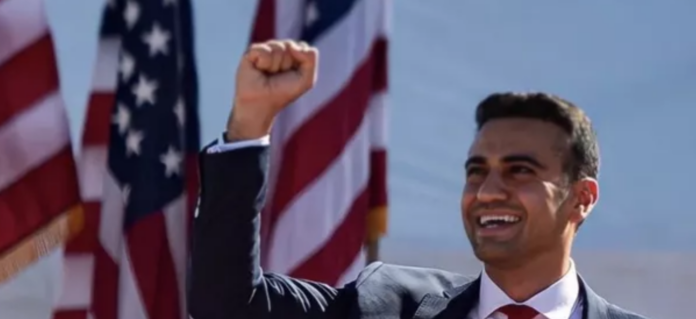Abe Hamadeh is the Republican candidate for Arizona Attorney-General in 2022. He is still trying to make sure that every valid vote in his race, which is the closest in Arizona history, is counted.
Democrat Kris Mayes was declared winner. The initial official result showed that she had won by 511 votes. Hamadeh filed suit against those results in December. Six days later, a judge dismissed the suit. Mayes’ lead was cut nearly in half by recount results that reduced Mayes’ lead to 280 votes. Hamadeh’s lawyers argue that in that recount, “significant, substantial discrepancies” were found that “cast doubt on the accuracy and completeness of the election results.” In court filings, Hamadeh’s attorneys claim that Katie Hobbs, then-Secretary to State, and other Arizona election officials had knowledge of those discrepancies by December 21. Yet, none of this information was shared with Hamadeh nor with the Court.
Hamadeh requested a new trial because of the new information that was provided after the recount results were not sealed. His attorneys also provided more details about the errors in a February 6 brief. Jennifer Wright, one Hamadeh’s lawyers, said that the team identified over 500 high-propensity voters and had their provisional ballots rejected. The team has discovered that voters with secondary residences in other counties are being reregistered in the county where they reside after some contact with the state bureaucracy. Their previous registration is automatically cancelled without any notice to the voter.
Wright posted a video to Twitter from Howard, a voter who lives in Mesa (Maricopa County).
Howard, a veteran of the disabled war and a retired long-haul truck driver, lives in Mesa. He also has a summer home at Show Low. He temporarily changes his address to Show Low every summer to continue receiving mail. However, this has not affected his ability to vote for Maricopa County as he isn’t actually changing his actual address. Howard had to get an Arizona ID card in the summer 2021 because he couldn’t drive anymore due to medical reasons. He did this while he was still in Show Low in Navajo County. That’s when the problem began.
Howard did not know that his request for a state ID card triggered ADOT’s Service Arizona portal, which created and submitted a voter registration form to register him to vote in Navajo County. Howard’s signature was either “pulled” from the file that contained the data used to create his state ID card.
The system-generated form was then reported to the Navajo County Recorder’s Office. The Maricopa County Recorder’s Office then cancelled Howard’s vote based on the “new” registration.
Howard was not notified at the time by either county records.
Howard discovered that he had registered to vote in Navajo County on May 20, 222. The county registrar mailed him information about the upcoming primary election. However, he wasn’t notified by Maricopa County of that cancellation. Howard immediately wrote to Navajo County to inform them that he didn’t live in the county. The Recorder canceled Howard’s Navajo County registration, and sent a letter to Howard’s Maricopa County home to confirm the action.
Howard was able to vote provisionally on Election Day, even though he provided proof that he was a Maricopa County resident.
While Hamadeh waits for a decision from Judge Jantzen or the Arizona Superior Court to make, he is interviewing voters who claim they were disenfranchised. Howard’s claims have been dismissed by the County Recorder as “voter error”, or ignored by voters seeking redress. Hamadeh however calls it what it really is: disenfranchisement.
My team discovered that many Arizonans were incorrectly disenfranchised due to system or procedural errors. Before running for Attorney General I was a prosecutor at Maricopa County Attorney’s Office, and abroad with the U.S. Army Reserve. I took an oath to protect the Constitution and uphold the laws. My values instill my commitment to fighting, and I will continue to pursue justice and accountability for those wrongfully excluded.
Hamadeh stated that the Arizona Democrats’ response to Mayes and other Democrats in Arizona shows that they are most afraid of the truth.
The responses of the defendants reveal one thing: fear. Fear of an improper election, fear that reported results are not accurate and, ultimately, fear of discovering the true election result.
Wright had these words to say about how election officials treated voters:
Hamadeh responds to those who claim Hamadeh should “move forward” and that it’s unnecessary to do anything now that Mayes is in office and working, pointing out that there is precedent that he can continue his legal challenge.
Hamadeh believes that this is the best way to bring attention to the Arizona election process and correct the errors and discrepancies in the handling of the ballots. He said, “The courts are not the appropriate venue for these ballot disputes. They are the right venue for them.” I will fight tirelessly to ensure that the people’s will is respected and that all valid votes are counted.




